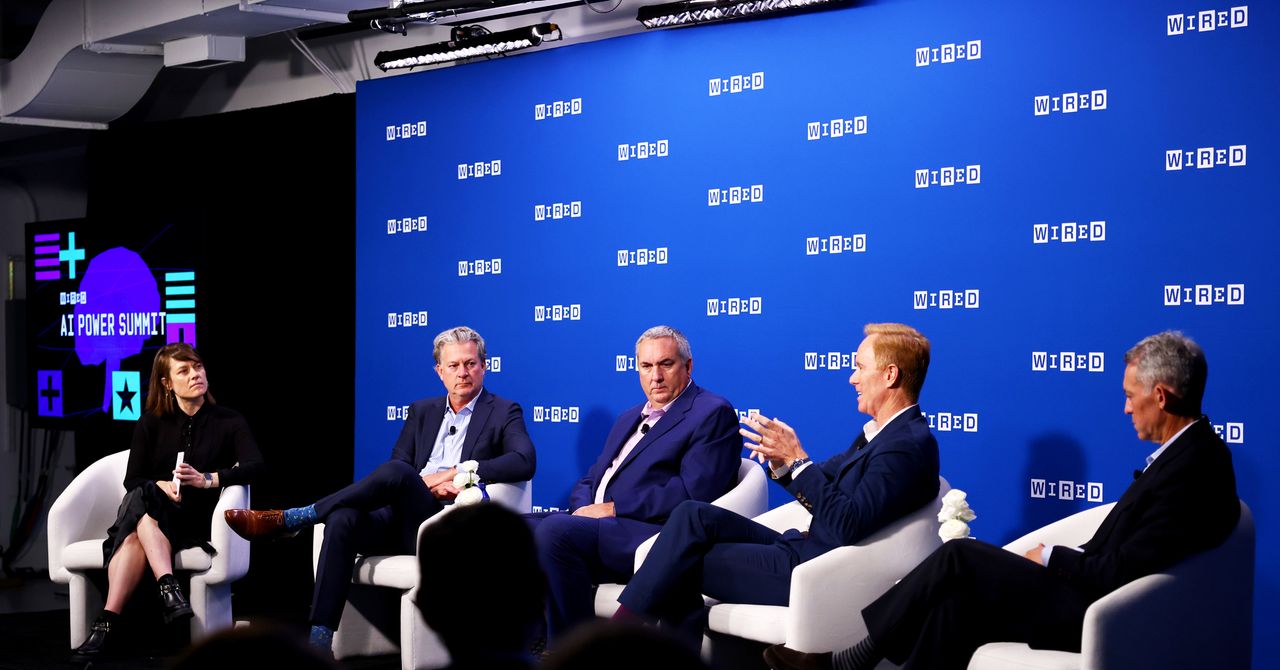AI's Disruptive Impact on Journalism Highlighted at WIRED AI Power Summit

Key Points
- WIRED AI Power Summit gathered tech, media, and political leaders to discuss AI's impact on journalism.
- Anna Wintour expressed both excitement and concern about AI replacing journalistic work.
- Media CEOs warned that AI overviews reduce traffic to publisher sites.
- Google highlighted AI's role in scientific breakthroughs and economic growth.
- Senator Richard Blumenthal urged preemptive policy to address copyright and other AI risks.
- Dean Ball defended the Trump administration's AI Action Plan as a comprehensive regulatory framework.
- Gannett launched its own chatbot tool, DeeperDive, to retain reader engagement.
- The summit revealed a split between optimism for AI-driven innovation and concerns over its disruptive effects on the news ecosystem.
Industry leaders, policymakers, and media executives gathered at the WIRED AI Power Summit to discuss how artificial intelligence is reshaping journalism. While some praised AI’s potential to drive innovation, others warned of traffic loss, content licensing challenges, and the need for regulatory guardrails. The dialogue underscored a clash between optimism about AI‑driven growth and concern over its effects on news ecosystems.
Overview of the Summit
At the WIRED AI Power Summit in New York, executives from tech, politics, and media convened to examine artificial intelligence’s far‑reaching influence on journalism. The event featured voices from the AI industry, a U.S. senator, a former administration official, and leaders from major publishing companies.
Media Perspectives
Anna Wintour, Condé Nast’s chief content officer, expressed a dual sentiment: excitement about AI’s capabilities and worry that it could replace both journalists and the subjects they cover. Gannett CEO Mike Reed warned that AI‑generated overviews divert traffic away from publisher sites, describing the claim that “AI Overview is not getting in the way of the 10 blue links” as “100 percent false.”
Other media CEOs, including Vox Media’s Jim Bankoff and People, Inc.’s Neil Vogel, echoed concerns about reduced visitor flow and the need for fair compensation for content used in AI models. Condé Nast CEO Roger Lynch likened the situation to the music industry’s early negotiations with streaming services, emphasizing the financial stakes of licensing content for AI.
Industry Optimism
Google’s vice president of government affairs, Markham C. Erickson, highlighted AI’s role in scientific breakthroughs such as protein modeling and materials science, framing it as a “generational opportunity” for U.S. innovation. He advocated for a balanced ecosystem that respects user preferences while fostering growth.
Policy and Regulation
Senator Richard Blumenthal called for proactive policy measures, suggesting that lawmakers should learn from social‑media regulation to address copyright and other challenges before AI causes “too much damage.” In contrast, Dean Ball, a senior fellow at the Foundation for American Innovation, defended the Trump administration’s AI Action Plan as a comprehensive framework that introduced more rules around AI risks than any other government.
Industry Responses
Facing the AI shift, Gannett announced the rollout of its own chatbot‑like tool, DeeperDive, aimed at providing answers directly to readers without relying on external AI services. This move reflects broader efforts by publishers to adapt to AI while retaining audience engagement.
Conclusion
The summit highlighted a clear divide: tech leaders see AI as a catalyst for economic and scientific advancement, while media executives and some policymakers warn of disruptive impacts on journalism’s business model and the need for protective regulations. The ongoing dialogue suggests that the industry will continue to grapple with balancing innovation and sustainability.